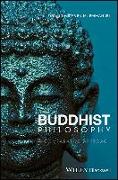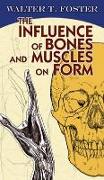- Start
- Buddhist Philosophy
Buddhist Philosophy
Angebote / Angebote:
Steven Emmanuel has done an excellent job of curating materials that express the richness of Buddhist philosophy and the vast resource it can be for Western philosophers. Bringing together several of the world's leading specialists in this interdisciplinary area, the volume accounts for Western topics of philosophical inquiry within Buddhist thought, and articulates how the two traditions benefit from each other when brought into dialogue. This book is a must for anyone interested in either philosophical perspective, or both." RICK REPETTI, The City University of New York "This is an excellent collection of essays by some of the foremost scholars engaging in comparative work between the Buddhist and Western philosophy. Philosophers from both traditions will be excited to explore the potential of studying familiar philosophical problems in metaphysics, ethics, or the philosophy of mind in a new key. This volume serves as a timely reminder for the Western philosophical traditions that our questions are not the only ones worth asking." Jan Westerhoff, University of Oxford Buddhist thought has garnered a great deal of attention in Western philosophical scholarship in recent years, but it has historically been approached and studied in opposition to, rather than in conjunction with, Western philosophy. The persistent tendency to regard Eastern traditions of thought as fundamentally "other" rests on the assumption that the questions they pose, and the methods used to investigate them, are incommensurable with Western philosophical practice. Buddhist Philosophy: A Comparative Approach challenges these preconceptions by presenting a series of readings that examine the prominent thinkers and texts of the Buddhist tradition in the round, introducing contemporary readers to major theories and debates at the intersection of Buddhist and Western thought. Chapters feature contributions from leading scholars trained in the Western philosophical tradition but deeply grounded in Buddhist literature, and serve as a bridge between East and West by engaging in a cross-cultural, even-handed dialogue with Buddhist thinkers on their own terms. Topics addressed include a wide range of points of convergence between the two philosophical traditions--from realism, idealism, and perspectivism to naturalism, physicalism, and the basis of moral judgment. Buddhist beliefs relating to the concepts of consciousness, gender, enlightenment, and rebirth are also explored in detail. Balancing accessibility with scholarly rigor, Buddhist Philosophy: A Comparative Approach is an informative introduction to the basic tenets of Buddhist thought and its philosophical underpinnings.
Folgt in ca. 15 Arbeitstagen




